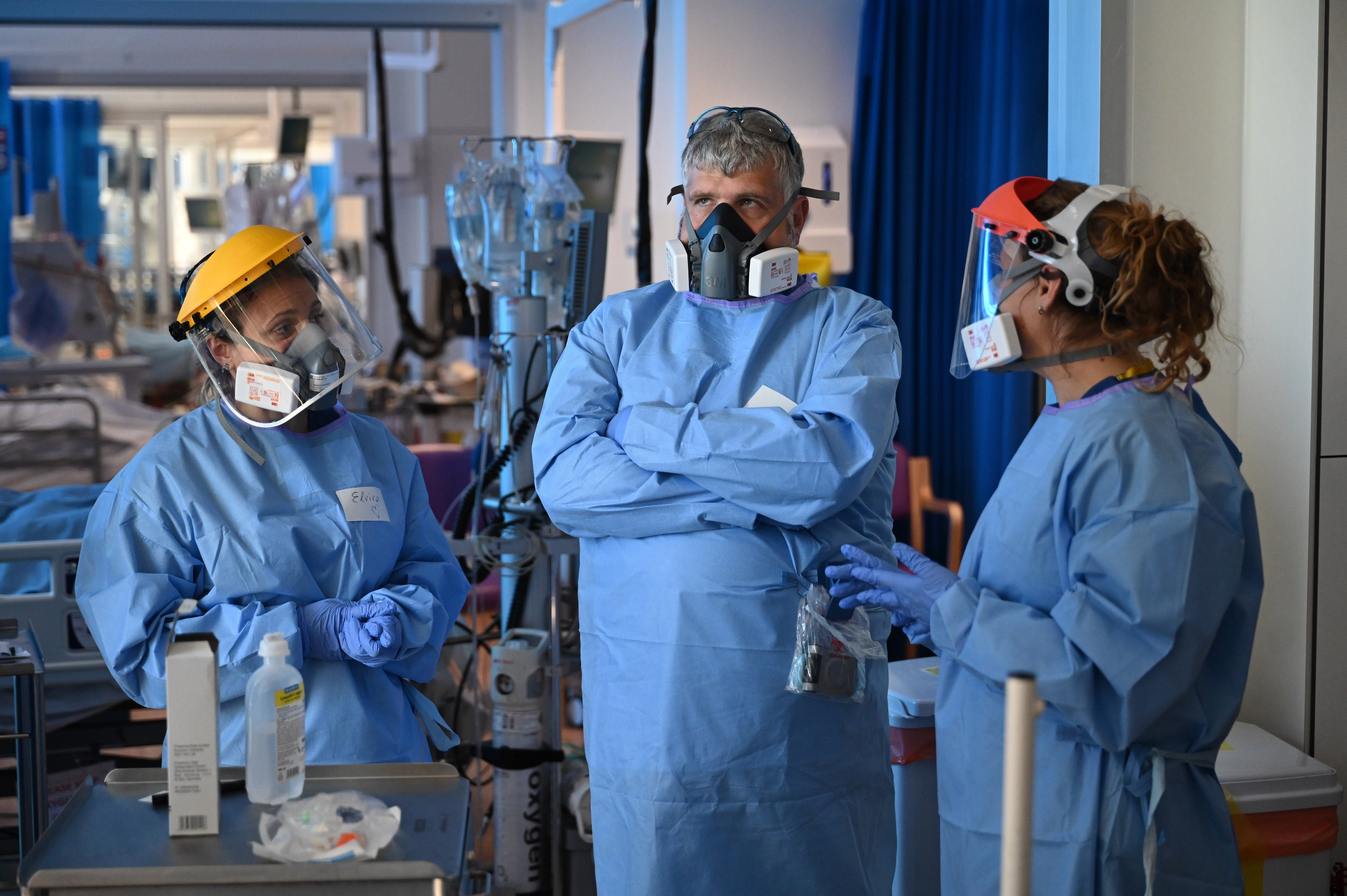‘A living nightmare’: Burnout could lead to tripling of NHS staff sickness next year
Exclusive: ‘I realised that I’d just had it, I’d had enough, I couldn’t do it any more,’ says one ICU nurse

Your support helps us to tell the story
From reproductive rights to climate change to Big Tech, The Independent is on the ground when the story is developing. Whether it's investigating the financials of Elon Musk's pro-Trump PAC or producing our latest documentary, 'The A Word', which shines a light on the American women fighting for reproductive rights, we know how important it is to parse out the facts from the messaging.
At such a critical moment in US history, we need reporters on the ground. Your donation allows us to keep sending journalists to speak to both sides of the story.
The Independent is trusted by Americans across the entire political spectrum. And unlike many other quality news outlets, we choose not to lock Americans out of our reporting and analysis with paywalls. We believe quality journalism should be available to everyone, paid for by those who can afford it.
Your support makes all the difference.Hospitals could see as many as one in six doctors and nurses off sick throughout 2022, according to modelling, as the Omicron wave of Covid fuels burnout, stress and anxiety among NHS staff.
Days of record Covid numbers – with 119,789 positive tests reported on Christmas Eve – have led to an increase in hospital admissions in recent weeks, while sickness has also increased among health workers, with NHS absences reaching 12 per cent last week.
But analysis by London South Bank University shows that even after this Covid spike, the health service could be hampered by an absence rate of up to 17 per cent – almost three times as high as the highest seen after previous waves – because of burnout and long Covid. This is on top of a significant number of vacancies in frontline roles.
Professor Alison Leary, whose team carried out the modelling on behalf of a number of NHS trusts, charities and professional organisations, said: “The impact of Covid is likely to impact the workforce and the ability to provide care in the longer term, not just during surges. We entered the pandemic with a workforce deficit, and we need to work to leverage supplementary workforce resources and deal with long-standing issues.”
Overall NHS staff absence rates during the pandemic have peaked after each wave, and reached their highest point in April 2020, standing at 6.2 per cent according to data up to July 2021. The pre-pandemic average was about 5 per cent. Data showed that the most common reason for staff absence was related to anxiety and stress, which drove 30 per cent of absences in July 2021.
Modelling undertaken by Professor Leary and her team suggests that sickness absence rates in London during the current wave could be as high as 40 per cent, while trusts across the country have predicted that their absence rates could reach 30 to 35 per cent.
Staff across the UK have raised concerns over continued pressures, with healthcare workers “crying every shift”, according to one consultant.
Chris Hopson, chief executive of NHS Providers, which represents hospitals, said: “The NHS workforce has come under relentless physical, psychological and emotional pressure during the pandemic.
“Trust leaders have regularly raised concerns about workforce burnout in the NHS. Our survey of trust leaders found 99 per cent were concerned about current levels of burnout across the workforce.”
One ICU nurse, who worked at a trust in the Midlands, told The Independent he had chosen to leave after the Delta wave as his job became “like a living nightmare”.
He said: “Every day was just horrific. I mean that in the true sense of the word, it was truly horrific. You’d go in to work, you wouldn’t want to go in because you were terrified, but you’d have to try and drag yourself in, drag your courage from somewhere because your mates will rely on you.
“You would have to go into this environment and carry on and do the best that you can, and you’d get that day after day after day. There didn’t seem to be any light on the horizon or any break. I realised that I’d just had it, I’d had enough, I couldn’t do it anymore. I realised when I looked inside myself that there was nothing inside me anymore. I’d used it all up, it was all gone.”
According to the most recent data from the Office for National Statistics, around 40,000 healthcare workers – just over 3 per cent – were estimated to have long Covid in December, up from 5,000 in July.
Dr Elaine Maxwell, former scientific adviser to the National Institute for Health Research, said, based on the current trajectory: “I think that it would be entirely likely that we’re going to see a maturing of the people who’ve been ill with long Covid for a year, as last winter’s infections mature. And I think we could easily see 50,000 NHS staff with long Covid.”
She also warned that NHS policies did not support staff suffering from long Covid, who may need a gradual return to work after a long absence. She said: “They’re told after six weeks, if you can’t hack it, then you have to leave or be redeployed. There’s no understanding in the processes that this is a fluctuating disease.”
A NHS spokesperson said: “It has been a year like no other and so it is important that staff are supported, which is why the NHS has rolled out 24/7 text support and 40 mental health and wellbeing hubs to ensure people get the help they need.”



Join our commenting forum
Join thought-provoking conversations, follow other Independent readers and see their replies
Comments